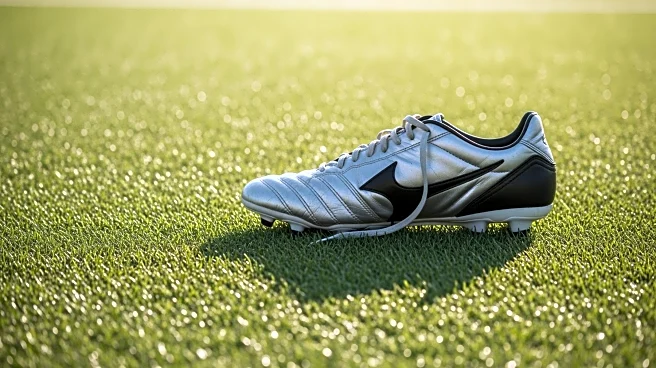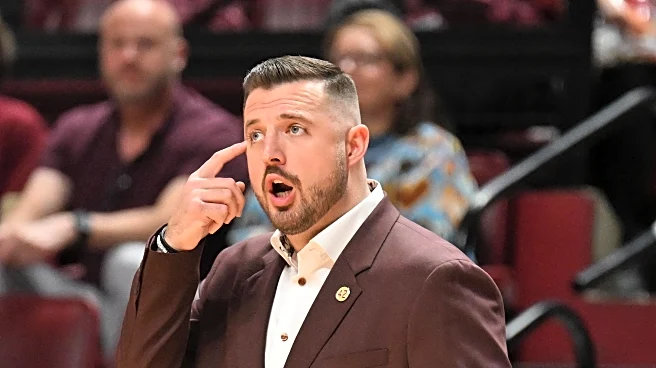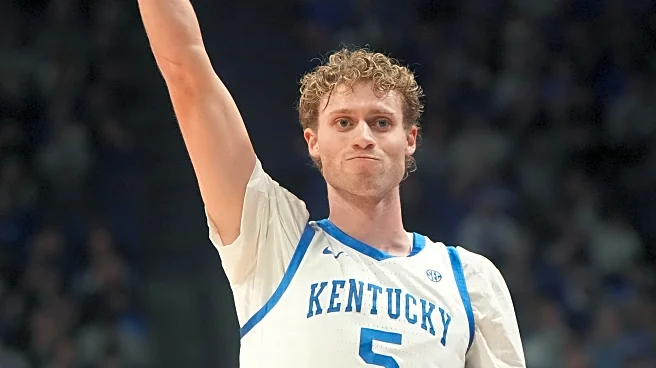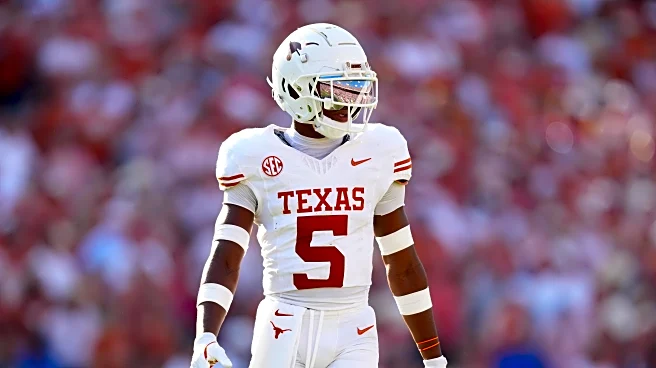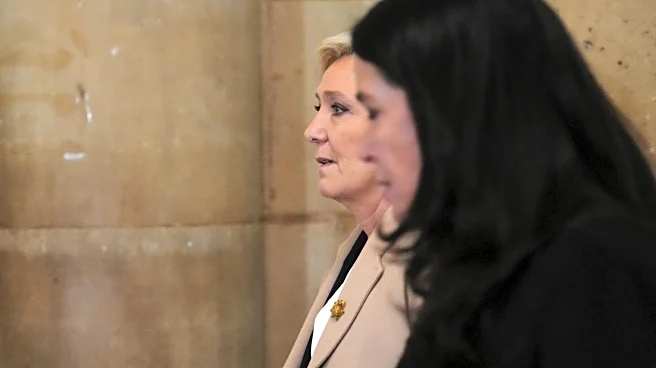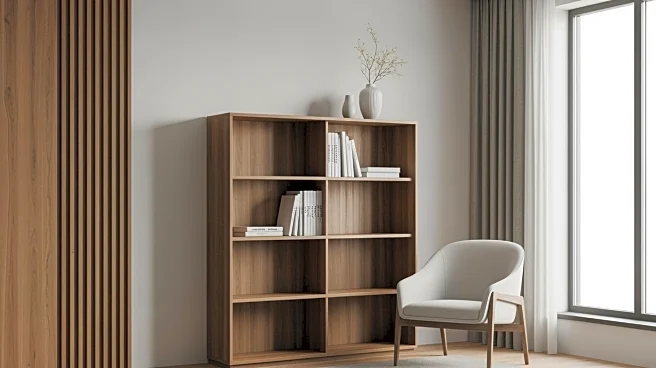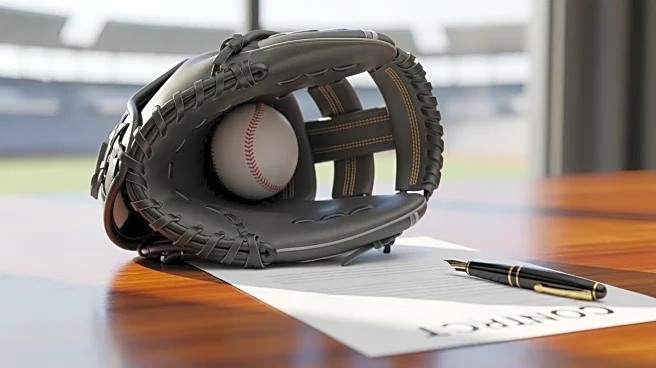What's Happening?
Arsenal Women defender Katie Reid has been ruled out for the remainder of the 2025/26 season due to a ruptured anterior cruciate ligament (ACL) injury sustained during a training session. The 19-year-old,
who had made six appearances in the Women's Super League this season, was set to undergo surgery in the coming days. Reid had recently earned her first call-up to the England squad in October but had to withdraw due to the injury, missing the opportunity to make her senior debut. Arsenal is also dealing with similar injuries to other players, including Michelle Agyemang and goalkeeper Manuela Zinsberger.
Why It's Important?
The injury to Katie Reid is a significant setback for Arsenal Women, impacting their defensive lineup for the season. ACL injuries are notoriously challenging, often requiring lengthy recovery periods, which can affect a player's career trajectory. Reid's absence will be felt by both Arsenal and the England national team, as she was on the cusp of making her senior debut. The recurrence of ACL injuries within the team raises concerns about player health and training practices, potentially prompting a review of current protocols to prevent future injuries.
What's Next?
Arsenal will need to adjust their defensive strategies to compensate for Reid's absence, possibly relying on other squad members or seeking reinforcements during the transfer window. The medical team will focus on Reid's rehabilitation, aiming for a successful recovery and return to play. The club may also evaluate their training and conditioning programs to address the frequency of ACL injuries among players, ensuring better prevention and management strategies.
Beyond the Headlines
The spate of ACL injuries at Arsenal highlights broader issues in women's football regarding player welfare and injury prevention. It may prompt discussions on the need for improved medical support and investment in research to understand the causes and prevention of such injuries. This situation could lead to increased advocacy for better resources and support systems for female athletes, ensuring their long-term health and career sustainability.
